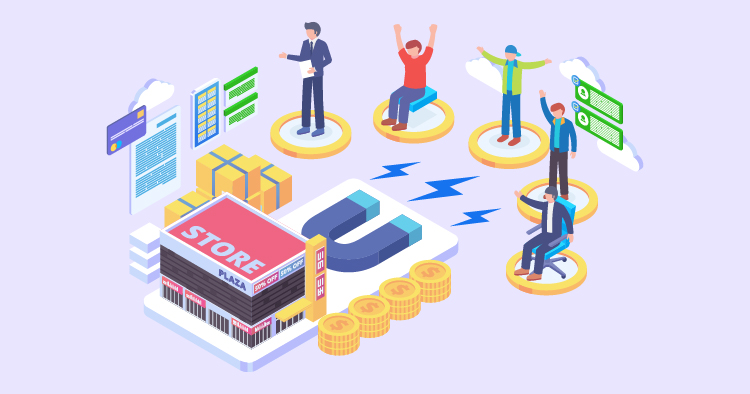Email marketing has stood the test of time, even as new digital marketing channels emerge. It might not get as much attention as social media, but it’s a reliable way to deliver tailored content and deals straight to your audience. Businesses that use email effectively can keep in touch with their customers, share helpful information, and encourage them to return. This approach is excellent for building brand loyalty and keeping customers around for the long haul. This article will explore why email marketing is an unsung hero in engaging customers and ensuring they return for more.
The Power of Customer Retention
Keeping your customers coming back is vital to a thriving business. It’s not just about a one-time sale; it’s about building relationships that stand the test of time. When customers make repeat purchases, it’s a sign they trust you and appreciate what you offer. This kind of loyalty doesn’t just keep your revenue steady—it also cuts costs. After all, finding new customers usually costs more than keeping the ones you have.
Happy customers don’t keep their satisfaction to themselves; they tell others, bringing in new business without you having to spend extra on marketing. Think of a satisfied repeat customer as one of your brand’s best cheerleaders.
Staying in touch with your customers helps you get to know them better. You learn what they like and what they expect, which lets you fine-tune your products and services. Offering people precisely what they’re looking for can set you apart from the competition, especially since shoppers love personalized experiences.
So, focusing on customer retention isn’t just about boosting your bottom line—it’s about creating a community of supporters who stand behind your brand. This leads to a loyal customer base that feels a real connection to your brand.
Email Marketing: A Tool for Customer Retention
Email marketing is a fantastic way to keep your customers interested. It’s a direct line to their inboxes, where you can send personalized messages, news, and special deals. By staying in touch via email, you remind them why they chose you first and encourage them to return.
You can shape your email campaigns to meet customers’ needs and interests. Your emails could include a regular newsletter, a tempting discount, or news about your latest product. These emails help keep your brand in your customers’ minds.
What’s more, email marketing lets you see what’s working. By examining the number of people who open your emails, click on links, and buy something, you can determine how to improve your next campaign.
Struggling with Digital marketing? Book Your Free Strategy Session!
- 30-Minutes Session
- Expert Insights
- Data-Driven approach
- Optimized Strategies for Your Goals
In short, email marketing is a smart way to strengthen your bond with customers. It’s personal, affordable, and gives you precise feedback, which can help you build loyalty and grow your business.
Understanding Customer Retention Measurement
Knowing how many customers stick with your business is crucial. You can figure this out by looking at the Customer Retention Rate (CRR). This percentage tells you who’s still with you after a specific time. Think of it like a score that shows how good you are at keeping customers. To find the CRR, start with the number of customers you have at the end of a period. Then, take away any new customers you got during that time. Next, divide this by how many customers you had when the period began. Finally, multiply by 100 to turn it into a percentage.
Customer Lifetime Value (CLV) is also crucial. It predicts the total profit a customer will bring your business over the whole time they’re with you. A high CLV means a customer is precious. To boost your CLV, you might work on making customers happier, getting them to buy more often, or selling more expensive items.
The Net Promoter Score (NPS) is a simple way to gauge customer loyalty. It asks customers if they’d recommend your business to others. Customers answer, and you label them promoters, passives, or detractors. To get the NPS, subtract the percent of detractors from the percent of promoters. This score gives you a sense of how people feel about your brand and where you can improve.
Don’t overlook customer feedback and reviews. They’re super valuable because they show what’s working and what’s not. If you track and analyze what customers say, you can better understand what they want. Then, you can make changes to give them a better experience. This could mean using surveys, feedback forms, or online reviews. Listening to your customers is a big part of keeping them around.
By watching these numbers, businesses can get to know their customers better, make them happier, and keep them coming back. This is how you grow your business with the help of loyal customers.
The Benefits of Email Marketing
Email marketing is a powerful tool for connecting with customers and keeping them interested in what you offer. Here are some reasons why it’s such an effective strategy:
Email marketing excels at personalizing messages. You can greet your customers by name, suggest items they might like based on what they’ve bought, or even send a friendly birthday message. This personal touch can make customers feel valued and strengthen their connection to your brand.
You can use email to share messages, from new product announcements and valuable tips to special discounts. This keeps things fresh for your audience, who will look forward to seeing what’s in store with each new email they receive.
One of the most appealing aspects of email marketing is its affordability. You can reach many people without spending much money, which is excellent for your budget. Even a straightforward email campaign can boost sales and strengthen customer loyalty, giving you a great return on your investment.
Email marketing goes beyond sending messages; it also provides valuable feedback. You can track who opens your emails, clicks on links, and makes purchases. This information is gold for tailoring your strategy to better serve your customers’ preferences and increase the effectiveness of your campaigns.
Combining personalized content, varied messages, and cost-efficiency leads to high customer engagement. Emails that feel personal and offer real value are more likely to be read and can keep people connected to your brand.
Email marketing can help you keep a solid relationship with your audience, foster loyalty, and propel your business to new heights.
The Basics of Email Marketing Etiquette
When you start with email marketing, it’s crucial to only send emails to people who have permitted you to do so. This means they’ve opted in to hear from you, and it’s an essential step in building a relationship based on trust and respect with your audience.
Make sure your emails clearly express why you’re reaching out. Avoid using confusing or deceptive subject lines. When your emails are genuine and straightforward, customers are more likely to trust your brand and look forward to your messages.
People are often overwhelmed with information, so they value emails that get to the point. Aim to keep your messages short but packed with helpful content. This balance shows that you respect their time and want to provide them with real benefits.
Always include a simple way for people to stop receiving your emails if they choose to. This is not just a legal requirement; it also demonstrates that you’re committed to a respectful and transparent relationship with your audience. Offering an easy opt-out option is part of good email marketing etiquette.
What Emails Work Best?
Informative Newsletters
Newsletters are a great way to keep your customers informed and engaged. They can include updates about your company, stories of interest, and showcase new products or services. The key is to provide content that adds value to your subscribers’ lives. A well-designed newsletter can connect your audience to your brand like part of a particular club.
Promotional Emails
Emails promoting new products or special deals can be very effective. They’re even more powerful when they feel personalized to the recipient. A promotional email with a strong call-to-action can motivate customers to purchase. It’s essential to balance these emails with others so your subscribers don’t feel overwhelmed by sales pitches.
Educational Emails
Sharing knowledge through educational emails can help your brand become a trusted source of information. Whether a simple tip, an in-depth guide, or industry insights, this content can help your customers meaningfully. Helping solve problems or teaching something new builds a stronger connection with your audience.
Transaction Emails
Don’t overlook the importance of transaction emails. After purchasing, customers receive confirmations, receipts, and status updates. These emails are essential for providing a good customer experience. Clear, concise, and timely transaction emails reassure customers that their order is being handled properly, which can turn a one-time buyer into a repeat customer.
Final Thoughts
When you dig into digital marketing strategies, the value of email marketing in keeping customers is crystal clear. The continued success of email campaigns shows that they can bring significant benefits to businesses. By focusing on personalized messages and real value, companies can make email marketing a solid force in maintaining customer interest in their brand. Email marketing’s ongoing significance is obvious, and its role as a champion in customer retention is well-earned. It should be a central part of any well-rounded marketing strategy.



